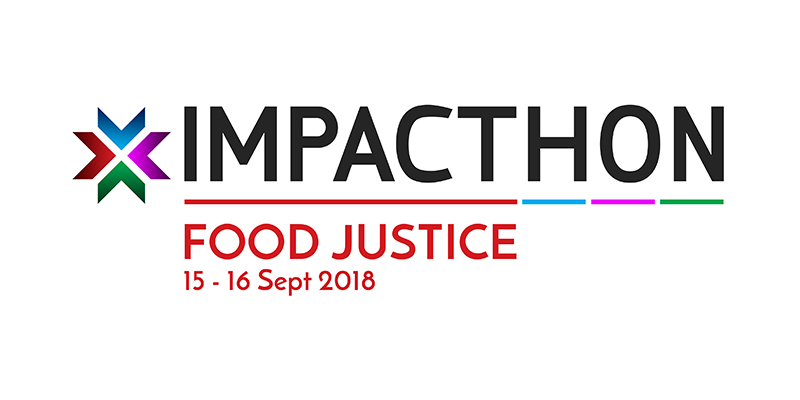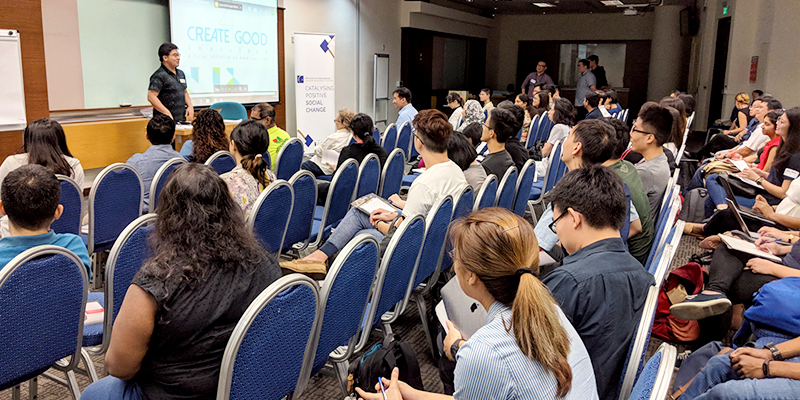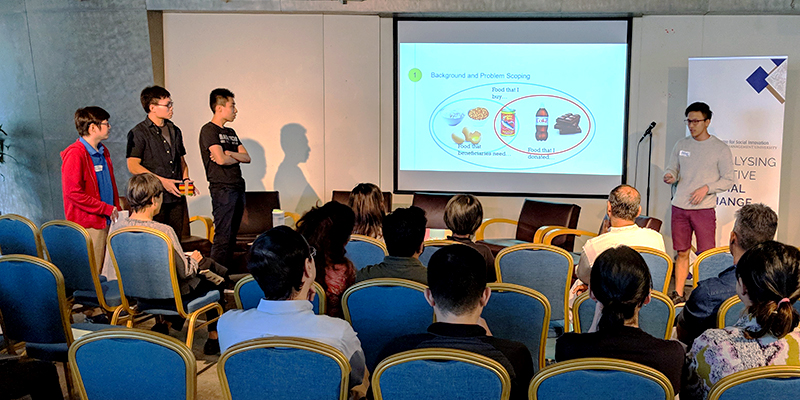Hungry for Change: An Impacthon for Food Justice
Wednesday Sep 11,2019 | Social Innovation

Food security is a hot topic in Singapore.
As a country that imports 90 percent of its food, the island nation is extremely vulnerable to disturbances in food distribution. Things like climate change, the growing global population, and unpredictable geopolitics and international relations could easily rock the boat.
To create more awareness on this issue, the Lien Centre for Social Innovation (LSCI) at Singapore Management University (SMU) hosted an Impacthon with the theme of Food Justice on 15 to 16 September 2018.
The event was a gathering of leaders and young change-makers to talk about the rarely discussed issue of food insecurity in Singapore and turn those conversations into community action. About a hundred representatives from food support organisations, community groups, corporates, universities, and the general public attended. This included Bike Aid, Red Cross Singapore, and Food From The Heart, Y-Waste, Comcrop and Ugly Food.
The event kicked off with a sharing of key findings from LCSI’s research report titled "Hunger in a food lover’s paradise: Understanding food insecurity in Singapore." “Food insecurity,” as defined by according to the LCSI report, refers to the “lack of physical and/or economic access to sufficient, safe, and nutritious food.”
The report surveyed 236 mainly low-income households in Singapore to get a sense of the state of food insecurity in the country and it gleaned some surprising results. Among those surveyed, only 2.5% reported having total food security, while 18.7% were found to be experiencing severe food insecurity.
So In spite of the fact that Singapore topped the global index for food security in 2018, the study revealed that there are Singaporean and Permanent Resident households who have worried about having enough food, skipped meals or experienced hunger. Some potential reasons highlighted by the report include chronic health conditions, insufficient income or mobility challenges.

“Prior to the Impacthon, I never thought that there were quite a number of Singaporeans facing food insecurity. I had assumed that food was accessible to everyone through the relevant means,” said Seet Yu Lian, an undergraduate at SMU.
But other than accessibility, an important factor of food security is nutrition. Social Service Agencies (SSAs) explain that the food they donate to their beneficiaries may sate their hunger, but lack the nutritional value to ensure good health and wellness.
“Our food is barely enough,” said one representative from an SSA. “It’s basically just to help them to lighten their financial burden. The amount they save on food that we give, hopefully they can use the money for some other more pressing needs.”
It was this picture of Singapore that prompted a challenge: how can the community tackle food justice issues based on the challenges shared by the food support organisations?
Throughout the two-day Impacthon, participants formed project groups to come up with a solution. They were guided by design thinking workshops, rich panel discussions, booths by local foodt organisations, and speaker sharing sessions from various experts in the field.
Some notable speakers include Nichol Ng, co-founder of The Food Bank Singapore, an organisation that redistributes food to over 200 non-profits, and Ankit Chopra, a Le Cordon Bleu-trained, award-winning food-social entrepreneur.
By the end of day two, nine project teams had pitched their solutions on alleviating social isolation, having sustainable food donations, providing nutritious food support, and distributing food efficiently. One of the teams even continued to develop their idea on sustainable food donations after the Impacthon with food support organisation, Food From The Heart.

All in all, the Impacthon was deemed to be a huge success with the event receiving a lot of positive feedback and even exceeding the expectations of the participants.
“Moving forward, I feel that more can be done to raise awareness on the issue of food justice,” said Seet Yu Lian. “If more donors understood the perspective of the beneficiaries, there would be more transparency on this topic.”

The Impacthon is a 2-day hackathon organised by the Lien Centre for Social Innovation that brings together social innovators, changemakers, thought leaders and youths from various backgrounds to tackle real-world issues and societal challenges.
Article written in collaboration with With Content